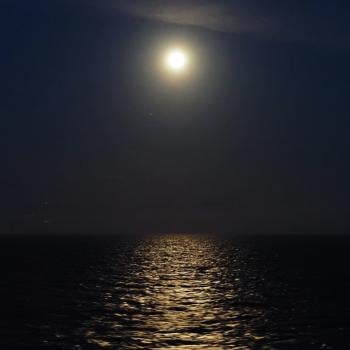Ours, then, is a universe in which we once again have a place, an origin, and for which we can speak to and for a cosmic destiny. Once again, perhaps for the first time in three centuries, we humans are finding ourselves at home in the universe. We are able once again to speak of the numinous quality of the universe, to understand the joy and sorrow of all mortal life as a part of an overarching cosmic story, and therein to detect the connection between all of nature and its divine source known to us through the self-revelation of God. Such an occasion demands a new rapprochement between the discoveries of the natural sciences and the spiritual journeys narrated by religion and reflected upon critically by theology and ethics.
Vast new insights in philosophy and theology
We are also living through an astonishing continental shift in philosophy and theology. We are witnessing the end of the modern period which began in the Enlightenment writings of Descartes, Hume, and Kant, and which heard its death bell in the writings of Whitehead, Wittgenstein, Quine, and Heidegger. In particular, within recent philosophy of science, we have seen the end of a naive empiricism brought about through the writings of Popper, Hanson, Hempel, Kuhn, Polanyi, Toulmin, Holton, Feyerabend, Lakatos, and others. Whereas we once thought that we could appeal unambiguously to sense-data, we now know that all data is theory-laden. We once thought that science constructed its theories inductively out of such data and that it made progress by a simple extension of its basic theories. We now know that the route between theory and evidence is much more complex and circular, and that progress sometimes comes in massive and discontinuous shifts in our entire worldview. We once thought that the choice between competing theories was entirely rational, that consensus could be achieved quickly among all objective inquirers. We now know that the choice between theories is influenced by metaphysical, aesthetic, and even religious presuppositions held by scientists, and that consensus is seldom achieved without remainder.
Within the past three decades, philosophers of religion have noticed the similarities now showing up between their field and science. Particularly because of the pioneering work of such scholars as Ian Barbour and Arthur Peacocke, and more recently by philosophers, scientists, and theologians such as Nancey Murphy, Holmes Rolston, Tom Torrance, John Polkinghorne, Nicholas Wolterstorff, and many more, we now realize that science and religion are not at opposite poles of objectivity and subjectivity. Instead they form a continuum in which the insights, methods, and discoveries of each can be shared fruitfully with the other, without threatening their separate foundations and central beliefs about the world. Similarly the theological community per se is moving out of the shadow of a "two worlds" approach to religion and science. The ecumenical movement between Protestants and Catholics and the inter-religious context in which Christian theology now encounters other world religions are stimulating new openness to the hypothetical character of religious doctrines and the need for self-critical reflection in light of the prevailing culture -- including scientific culture.
An era of new possibilities for interaction
Because of this, we are moving into an era of radically new possibilities. Religion once again needs the rigors of science to rid it of superstition, for religion inevitably makes truth claims about this world that "God so loves," claims which must be weighed against the grueling tribunal of evidence. More surprisingly, science needs religion to expose its pretensions to absolute authority and unique and unequivocal truth. The universe is more mysterious and more infinite that either science or religion can ever fully disclose, and the urgencies of humankind and the natural environment demand an honest interaction between the discoveries of nature, the empowerment afforded us by appropriate technology, the inherent value of the environment, and the demand that we commit ourselves to a future in which all species can flourish. We can no longer afford the stalemate of past centuries between theology and science, for this leaves nature Godless and religion worldless. When this happens, our culture, hungering after science for something to fill the void of its lost spiritual resources, is easy prey to New Age illusions wrapped in science-sounding language -- the ‘cosmic self-realization movement' and the ‘wow of physics' -- while our ‘de-natured' religion, attempting to correct social wrong and to provide meaning and support for life's journey, is incapable of making its moral claims persuasive or its spiritual comfort effective because its cognitive claims are not credible. Nor can we allow science and religion to be seen as adversaries, for they will either be locked in a conflict of mutual conquest, such as "creation science" which costs religion its credibility or "scientific materialism" which costs science its innocence.




